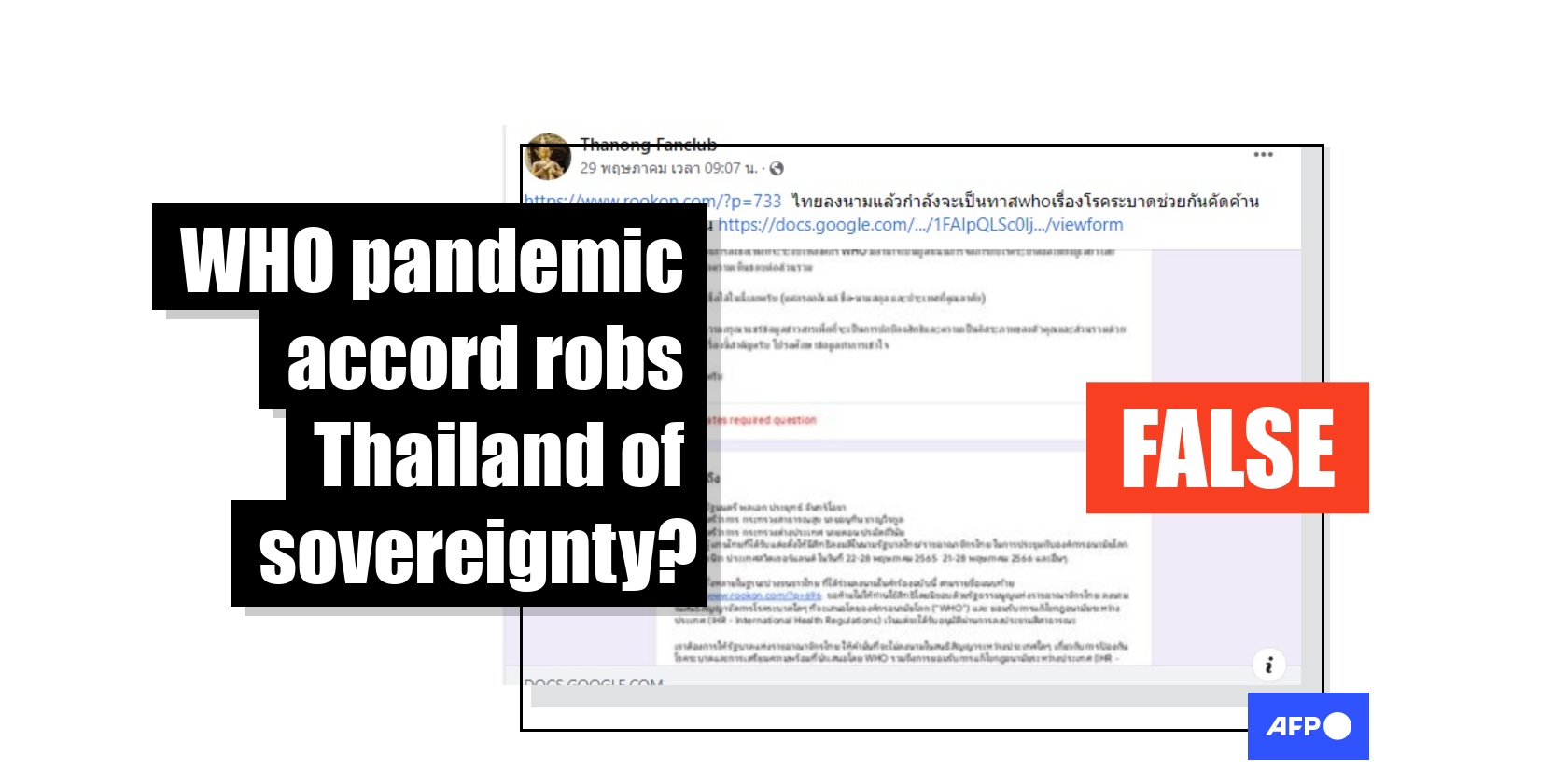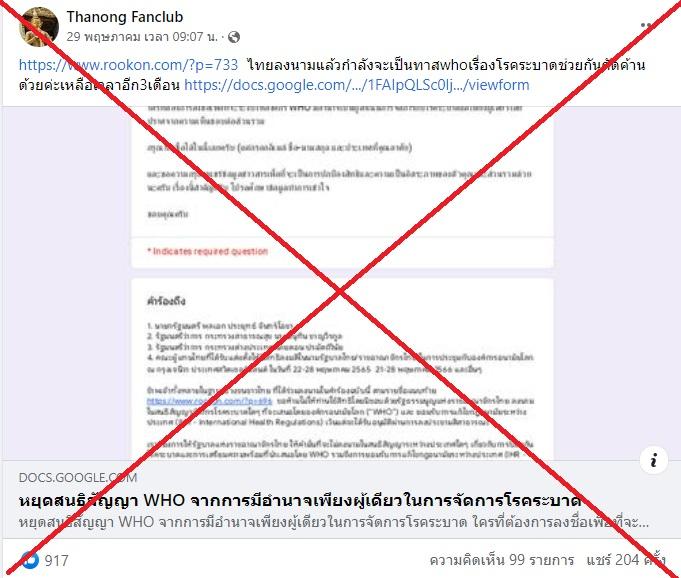
Posts misrepresenting draft WHO pandemic accord spread online in Thailand
- This article is more than two years old.
- Published on June 20, 2023 at 09:10
- 2 min read
- By Panisa AEMOCHA, AFP Thailand
"Thailand just signed. We will become a slave of WHO on pandemics. Please help object to this. We only have three months left,” reads a Thai-language Facebook post published here on May 29, 2023.
It includes a link to a website sharing the same claim and a petition that says a WHO treaty will grant the global health agency sole authority to handle future pandemics.

As countries were battling the Covid-19 emergency in 2021, the WHO in December that year established an intergovernmental body to negotiate an accord to help states deal with future pandemics.
The agency said the proposal is a response to the "catastrophic failure of the international community in showing solidarity and equity" in responding to Covid-19.
Similar false claims about the pandemic accord were shared on Facebook and YouTube.
Comments on these posts suggest they misled social media users.
One wrote: "Slavery treaty. WHO will soon have power over the laws of all countries if we do not resist this treaty."
"So what is the public supposed to do now … how can they fight back? … Please tell us so we can help each other," another said.
Experts say the posts misrepresent the draft WHO accord.
Pandemic response
"Countries are still in charge of their pandemic response," Sharifah Sekalala, professor of global health law at the University of Warwick, told AFP on June 7.
"The treaty just tries to increase the level of international cooperation within this response."
The WHO accord "does not in any way deny state sovereignty in dealing with pandemics", Benjamin Mason Meier, a professor of global health policy at the University of North Carolina at Chapel Hill, said on June 8.
"In fact, it will be drafted by states themselves," he added.
The WHO's representative to Thailand, Jos Vandelaer, said on June 2 the global agency "only has authority to advise and recommend, not to oblige, countries to provide vaccinations or prophylaxis for specific diseases that may pose a risk of international spread".
The draft text of the accord on the WHO website as of June 20 states: "States have, in accordance with the Charter of the United Nations and the general principles of international law, the sovereign right to legislate and to implement legislation in pursuance of their health policies (archived link).
Negotiations ongoing
Stéphanie Dagron, head of global health law at the University of Geneva, also said on June 7 she understood the fear that some countries might have but "being a sovereign state means, as well, having the possibility to negotiate the treaty and to accept or not the transfer of specific competencies to WHO".
Sophon Iamsirithaworn, deputy chief of Thailand's Department of Disease Control, told AFP on June 19 the kingdom has not yet signed the accord, contrary to the posts.
"No signing has taken place yet and there will be further discussion next year," Sophon said on June 19.
According to the WHO, member states meet regularly to discuss the accord with a final decision on whether to adopt it scheduled for 2024 (archived link).
AFP previously debunked similar claims that have circulated in the United States here and here.
Copyright © AFP 2017-2026. Any commercial use of this content requires a subscription. Click here to find out more.
Is there content that you would like AFP to fact-check? Get in touch.
Contact us
